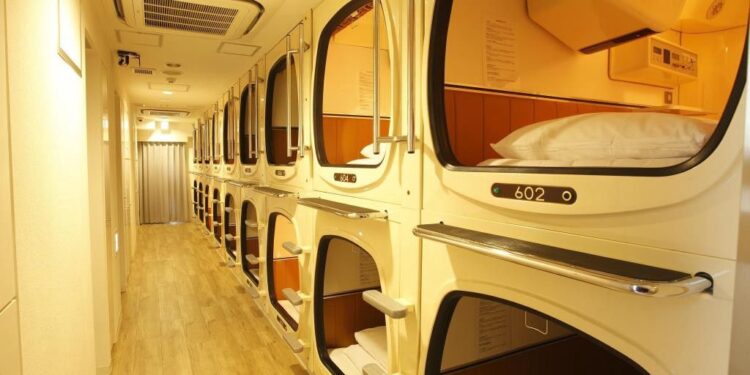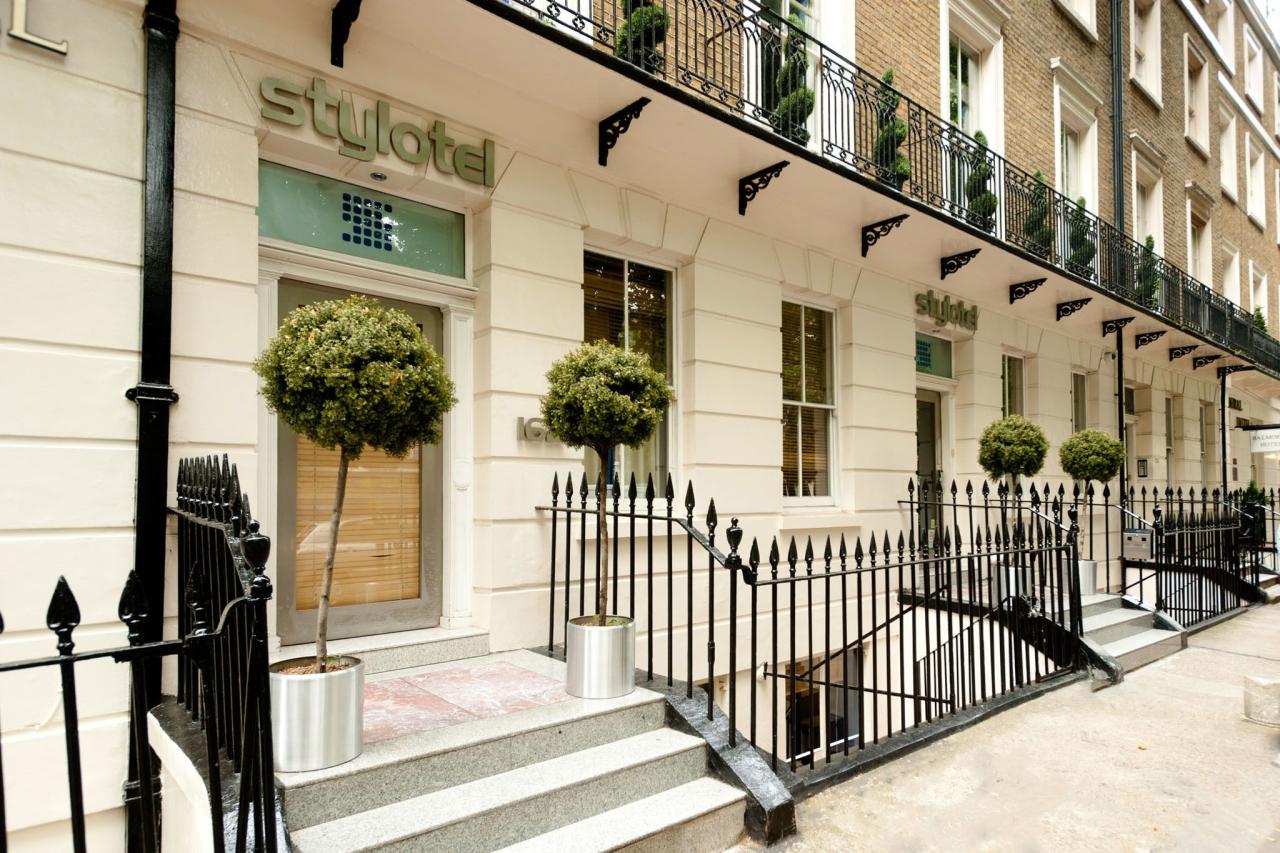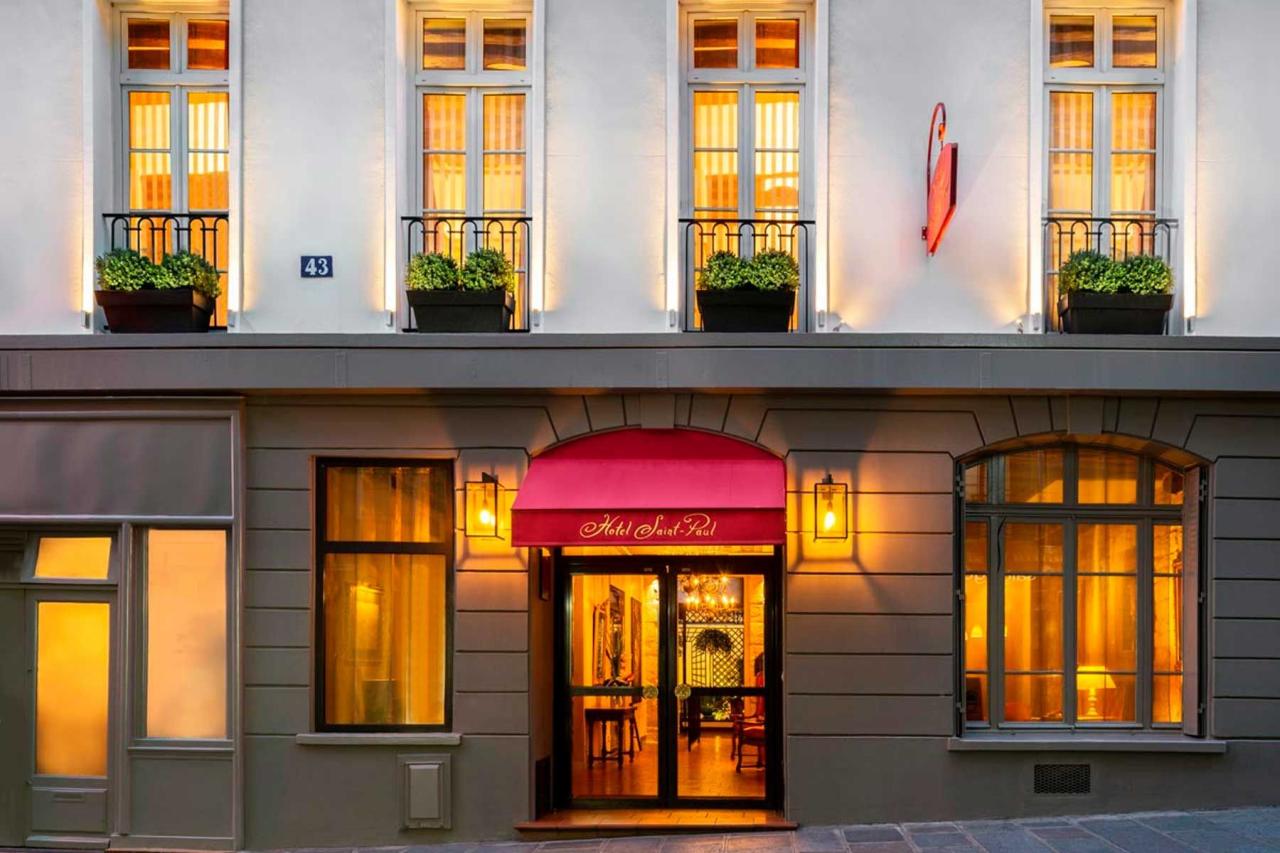Smart Stays: Mastering Budget Hotel Choices
The world of travel is constantly evolving, and for many, the focus isn’t always on lavish luxury but on making smart, economical choices without sacrificing comfort or convenience. Budget hotels have emerged as a cornerstone of modern travel, offering accessible accommodation solutions for everyone from backpackers and business travelers to families and digital nomads. Far from the outdated stereotype of dingy motels, today’s budget hotels are innovating, providing clean, comfortable, and often stylish stays that help travelers stretch their rupiah further. This comprehensive guide will delve deep into the art of selecting the perfect budget hotel, revealing strategies to maximize value, navigate the vast array of options, and ensure a genuinely enjoyable travel experience without breaking the bank. We’ll explore the hidden gems, the critical factors to consider, and how technology is making budget travel more rewarding than ever.
Understanding the Evolving Landscape of Budget Accommodations
The concept of a “budget hotel” has undergone a significant transformation. What once implied minimal amenities and questionable quality now encompasses a diverse range of properties, from no-frills chains to chic, design-led hostels and boutique-style guesthouses. This evolution is driven by several key factors: increasing global travel, the rise of conscious consumerism, and technological advancements that empower travelers with more information and booking options.
A. Defining “Budget” in Modern Travel
The term “budget” is relative, but generally, it refers to accommodations that offer significantly lower prices than mid-range or luxury hotels while still providing essential services. This can include:
- No-Frills Chains: Think international brands like Ibis Budget, Tune Hotels, or local equivalents that prioritize efficiency and basic comfort. They often offer compact rooms, essential amenities, and sometimes shared communal spaces.
- Hostels (Private Rooms & Pods): While traditionally dorm-focused, many hostels now offer private rooms with en-suite bathrooms, or innovative “pod” accommodations that provide privacy and a unique experience at a fraction of hotel costs. They often boast vibrant common areas.
- Guesthouses and Homestays: Smaller, independently run establishments that offer a more personal, local experience. They might have fewer rooms but often compensate with unique charm, homemade breakfasts, and direct interaction with the owners.
- Motels: Predominantly found in North America, these roadside establishments traditionally offer direct room access from parking lots. While some remain basic, many have upgraded their facilities to cater to modern travelers, especially those on road trips.
- Extended Stay Hotels: For longer trips, these properties offer apartment-style amenities like kitchenettes, laundromats, and larger living spaces, providing significant savings on dining out and laundry services.
B. The Driving Forces Behind the Budget Hotel Boom
Several societal and economic trends have fueled the popularity and improvement of budget hotels:
- Increased Travel Accessibility: More people worldwide are traveling, thanks to affordable flights and a growing middle class, particularly in emerging economies. Budget hotels make travel dreams attainable for a wider demographic.
- Shift in Traveler Priorities: Many travelers, especially younger generations, prioritize experiences and exploration over lavish hotel amenities. They view hotels as a place to sleep and refresh, preferring to spend their money on activities, food, and cultural immersion.
- Digital Nomadism and Remote Work: The rise of remote work has created a new segment of long-term travelers who need reliable, affordable accommodation with good Wi-Fi, often seeking communal spaces for networking.
- Sustainability Consciousness: Budget hotels, with their often smaller footprints and focus on essential services, can appeal to environmentally conscious travelers looking to reduce their impact.
- Technological Empowerment: Online Travel Agencies (OTAs), review platforms, and meta-search engines have made it easier than ever to find, compare, and book budget hotels, fostering transparency and competition that drives up quality.
Key Factors for Selecting Your Ideal Budget Hotel
Choosing a budget hotel isn’t just about finding the lowest price. It’s about optimizing value, ensuring a comfortable stay, and avoiding common pitfalls. A strategic approach involves careful consideration of several crucial elements that contribute to your overall experience.
A. Location, Location, Location
Even a cheap hotel can be expensive if it’s far from everything you want to see and do, necessitating costly transportation. Prioritize accessibility:
- Proximity to Attractions: Is it within walking distance of major sights, or easily accessible by public transport? Factor in the time and cost of commuting.
- Public Transportation Access: Check for nearby bus stops, train stations, or subway/metro lines. A well-connected budget hotel can save you a lot.
- Neighborhood Vibe: Research the safety, noise levels, and available amenities (restaurants, convenience stores) in the immediate vicinity. A vibrant neighborhood might offer more local dining options, saving on expensive hotel food.
- Airport/Train Station Access: If you have an early flight or late arrival, consider hotels with direct, affordable links to transport hubs.
B. Amenities That Matter Most
Budget hotels are about essentials, but “essentials” can vary for each traveler. Prioritize what’s non-negotiable for your comfort and productivity:
- Wi-Fi Connectivity: Is it free? Is it fast and reliable? Crucial for planning, staying connected, or remote work. Don’t assume it’s included or high-quality.
- Private Bathroom: For many, this is non-negotiable for comfort and privacy. Verify if rooms are en-suite or if bathrooms are shared.
- Air Conditioning/Heating: Depending on the climate, this can significantly impact your comfort. Check if it’s available and adjustable in your room.
- 24-Hour Front Desk: Important for late check-ins, early check-outs, or if you anticipate needing assistance at odd hours.
- Security Features: Look for secure entry systems, in-room safes, and well-lit common areas. Peace of mind is priceless.
- Breakfast Options: Is breakfast included? If not, are there affordable cafes or bakeries nearby? Sometimes, paying a little extra for an included breakfast can save time and money in the long run.
- Laundry Facilities: For longer trips, access to a self-service laundry or affordable laundry service can be a huge benefit.
C. The Power of Reviews and Ratings
User reviews are your best friend in the budget hotel landscape. They offer unfiltered insights into the true guest experience:
- Consistency is Key: Look for patterns in reviews. If multiple guests complain about the same issue (e.g., noisy rooms, slow Wi-Fi, unfriendly staff), it’s likely a recurring problem.
- Recent Reviews: Prioritize reviews from the last few months. Hotels can change management, renovate, or decline in quality over time.
- Specific Details: Pay attention to comments about bed comfort, water pressure, cleanliness, and the friendliness of staff.
- Management Responses: How does the hotel respond to negative reviews? A thoughtful, problem-solving response can be a good sign, showing they care about guest satisfaction.
- Cross-Reference Platforms: Don’t rely on just one site. Check reviews on Google Maps, TripAdvisor, Booking.com, and Expedia for a more balanced perspective.
D. Booking Strategies for Maximum Savings
Smart booking habits can unlock even greater savings on budget accommodations:
- Book in Advance (but not too far): While last-minute deals exist, booking a few weeks to a few months ahead often secures better rates, especially during peak season. Avoid booking too far out as rates can sometimes drop closer to the date.
- Flexibility with Dates: If your travel dates are flexible, use “flexible date” search options on OTAs to see when prices are lowest. Mid-week stays are often cheaper than weekends.
- Compare Across Platforms: Use meta-search engines (like Kayak, Google Hotels, Trivago) to compare prices across various OTAs and the hotel’s direct website. Sometimes, direct bookings offer perks or better cancellation policies.
- Consider Loyalty Programs: If you frequently stay with a particular budget hotel chain, joining their loyalty program can earn you discounts, free nights, or perks like late check-out.
- Look for Bundles: Sometimes, booking a flight + hotel package can be cheaper than booking them separately, even if you only need the hotel.
- Beware of Hidden Fees: Always check for additional charges like resort fees, city taxes, parking fees, or Wi-Fi charges that might not be included in the initial quoted price.
The Diverse World of Budget Hotel Concepts
The budget hotel sector is far from monolithic. Different concepts cater to distinct travel styles and preferences, offering specialized experiences within an affordable framework.
A. The Rise of “Smart” and Tech-Driven Hotels
These hotels prioritize efficiency and self-service through technology, appealing to tech-savvy travelers:
- Automated Check-in/Check-out: Kiosks or mobile apps replace traditional front desks, speeding up the process.
- Digital Room Keys: Use your smartphone as your key, enhancing convenience and security.
- App-Based Services: Order amenities, request services, or control room features (lighting, temperature) directly from a hotel app.
- Co-working Spaces: Integrated areas designed for remote work, often with high-speed internet and power outlets, catering to digital nomads.
- Focus on Connectivity: Robust Wi-Fi, ample power outlets, and often USB charging ports in every room are standard.
B. Boutique Budget Hotels and “Poshtels”
These properties challenge the traditional notion of budget accommodation by combining affordability with stylish design and a vibrant atmosphere:
- Design-Led Interiors: Think trendy decor, artistic touches, and Instagrammable common areas, often reflecting local culture.
- Social Hubs: Lively common areas, bars, and cafes that encourage guest interaction and local engagement. These are great for solo travelers looking to meet people.
- Curated Experiences: Often organize local tours, workshops, or events, providing unique cultural immersion opportunities.
- Mixture of Room Types: May offer both shared dorms (often high-end “pods” with privacy screens) and private rooms, catering to different budget levels and privacy needs.
C. The Enduring Appeal of Guesthouses and Homestays
For travelers seeking an authentic, localized experience, guesthouses and homestays offer an unparalleled window into local life:
- Personalized Service: Often run by families, these establishments provide a warm, intimate atmosphere and personalized recommendations.
- Local Immersion: Staying with locals offers unique insights into local customs, cuisine, and daily life, far beyond what a large hotel can provide.
- Home-Cooked Meals: Many offer delicious homemade breakfasts or even dinners, providing an authentic taste of local cuisine at a very reasonable price.
- Community Connection: An excellent way to support local economies directly and build relationships with residents.
- Unique Character: Each guesthouse has its own distinct personality, often reflecting the history and culture of the region.
Maximizing Your Stay: Tips and Tricks for Budget Hotel Guests
Once you’ve chosen your budget hotel, there are still ways to ensure a smooth and enjoyable stay, making the most of your smart choice.
A. Communicate Your Needs Clearly
Don’t be shy about communicating with the hotel staff. They are there to help make your stay comfortable.
- Special Requests: If you need a quiet room, a room near an elevator, or have specific accessibility needs, inform the hotel in advance.
- Reporting Issues: If something isn’t right in your room (e.g., a non-functioning light, a clogged drain), report it promptly and politely. Most hotels appreciate the chance to fix things.
- Local Recommendations: Front desk staff often have excellent, up-to-date local knowledge for restaurants, attractions, and transportation. Don’t hesitate to ask for their insider tips.
B. Leverage Hotel Amenities and Services Wisely
Even budget hotels often offer valuable amenities you can use to save money and enhance your trip:
- Complimentary Breakfast: If offered, always take advantage. It’s a significant saving compared to eating out.
- Guest Kitchens: Some hostels and guesthouses offer communal kitchens. Cooking a few meals can drastically cut down on food expenses.
- Laundry Facilities: Utilize on-site laundry to pack lighter and save on commercial laundry services.
- Luggage Storage: Many budget hotels offer free or low-cost luggage storage before check-in or after check-out, allowing you to explore unencumbered.
- Shuttle Services: If available, airport or local shuttle services can save on taxi fares.
C. Maintain a Positive and Realistic Mindset
Remember, you’ve chosen a budget hotel for a reason – typically to save money and allocate resources elsewhere. Setting realistic expectations is key to satisfaction.
- Embrace Simplicity: Don’t expect luxury amenities or sprawling spaces. Focus on the value provided: a clean, safe, and comfortable place to sleep.
- Flexibility is Your Friend: Sometimes, minor inconveniences might arise in budget properties. A flexible and understanding attitude can make your trip much smoother.
- Engage with Fellow Travelers: Especially in hostels and guesthouses, common areas are fantastic places to meet other travelers, share tips, and make new friends, enriching your overall experience.
- Provide Constructive Feedback: If you have an excellent experience, leave a positive review. If you encounter issues, provide polite, constructive feedback directly to the management. This helps them improve for future guests.
The Impact of Budget Hotels on the Travel Ecosystem
Budget hotels aren’t just about individual savings; they play a crucial role in the broader travel and tourism ecosystem, fostering accessibility, innovation, and local economic development.
A. Driving Tourism Accessibility and Inclusivity
By offering more affordable accommodation options, budget hotels open up travel to a wider demographic. This means:
- Democratization of Travel: People from diverse economic backgrounds can experience new cultures, visit distant lands, and create lasting memories, which might have been out of reach with only luxury options.
- Increased Foot Traffic to Destinations: More accessible accommodation often translates to higher tourist numbers, benefiting local businesses, attractions, and service providers beyond the hotel itself.
- Support for Emerging Destinations: Budget hotels are often pioneers in developing or less-explored regions, making them viable for tourists and thereby stimulating local economies and infrastructure development.
B. Fostering Innovation in Hospitality
The competitive nature of the budget segment pushes hotels to innovate in terms of design, technology, and service delivery:
- Space Optimization: Architects and designers are constantly finding ingenious ways to maximize small spaces, leading to clever furniture solutions and multi-functional room layouts.
- Technological Integration: From app-controlled rooms to robotic concierges in some innovative concepts, budget hotels are often early adopters of technology to streamline operations and enhance guest experience.
- Sustainable Practices: Many budget hotels are embracing eco-friendly initiatives, from energy-efficient lighting and water-saving fixtures to waste reduction programs, appealing to the growing number of environmentally conscious travelers.
C. Contributing to Local Economies
Unlike large, often foreign-owned luxury resorts that might import many of their goods and services, budget hotels often have a more direct and significant impact on local economies:
- Job Creation: They provide employment opportunities for local residents, from front desk staff and housekeepers to maintenance and security personnel.
- Local Sourcing: Many budget hotels, especially guesthouses and independent properties, are more likely to source food, beverages, and supplies from local markets and vendors, keeping money within the community.
- Supporting Local Businesses: By recommending local restaurants, shops, and tour operators, budget hotels funnel tourist spending directly into the community.
- Cultural Preservation: By encouraging authentic local experiences, these hotels often inadvertently support local artisans, performers, and cultural institutions.
Conclusion
The era of smart travel choices is upon us, and budget hotels are no longer just a compromise but a strategic decision for millions of travelers worldwide. They represent a significant shift in hospitality, prioritizing value, authenticity, and experience over ostentatious displays of wealth. By understanding the evolving landscape, meticulously evaluating key factors like location and amenities, leveraging the power of online reviews, and employing savvy booking strategies, travelers can unlock incredible value.
The innovations in design, technology, and guest experience within the budget sector mean that affordability no longer equates to a diminished stay. Instead, it offers an opportunity for deeper immersion, greater flexibility, and the freedom to allocate precious travel funds towards enriching activities and genuine cultural encounters. So, whether you’re embarking on an epic solo adventure, a cost-conscious family vacation, or a remote work escapade, mastering the art of the budget hotel ensures your journey is not just affordable, but truly unforgettable and smart. The future of travel is accessible, and the budget hotel is leading the way, proving that intelligent choices can lead to exceptional experiences.









